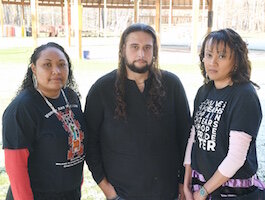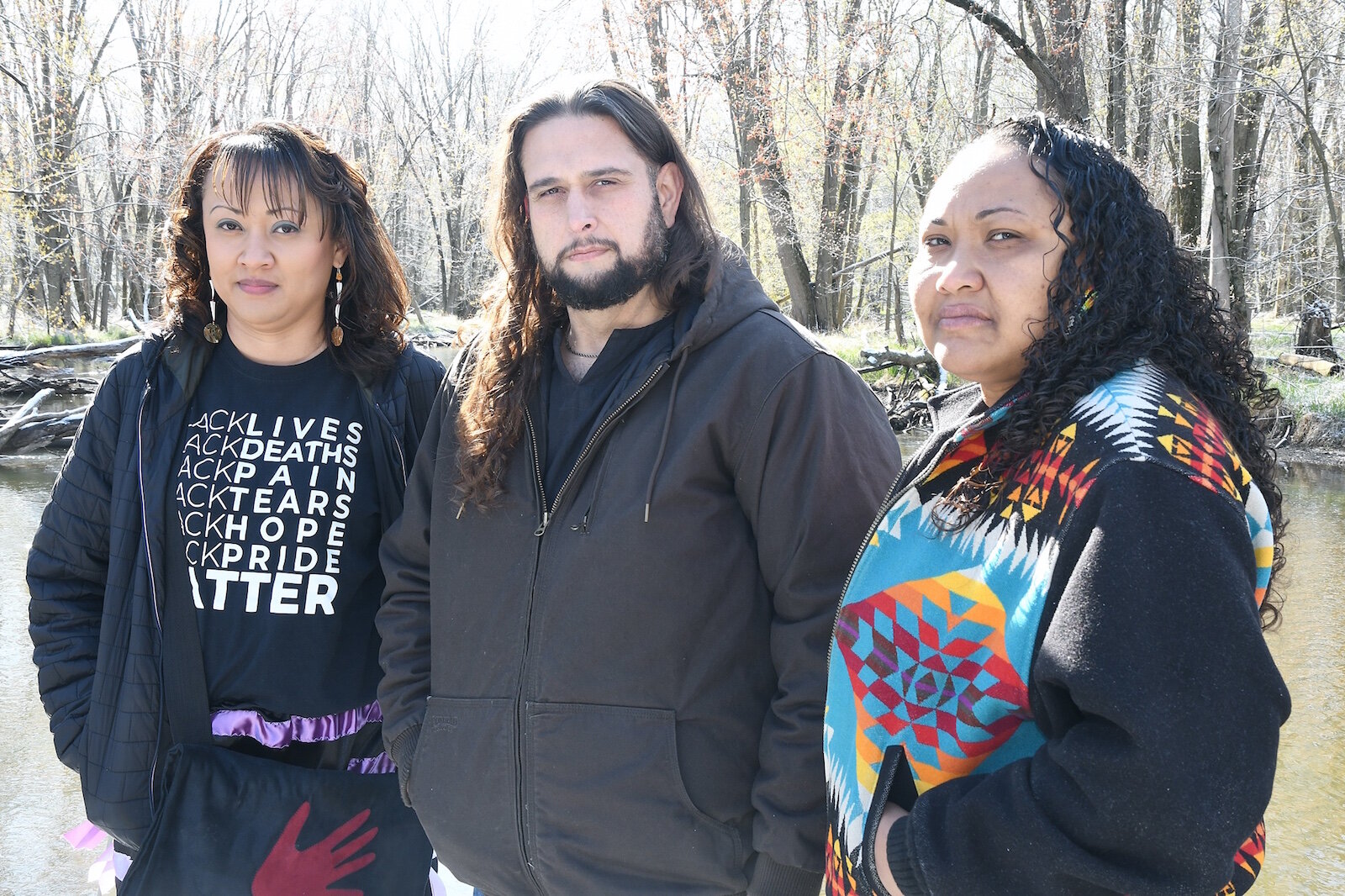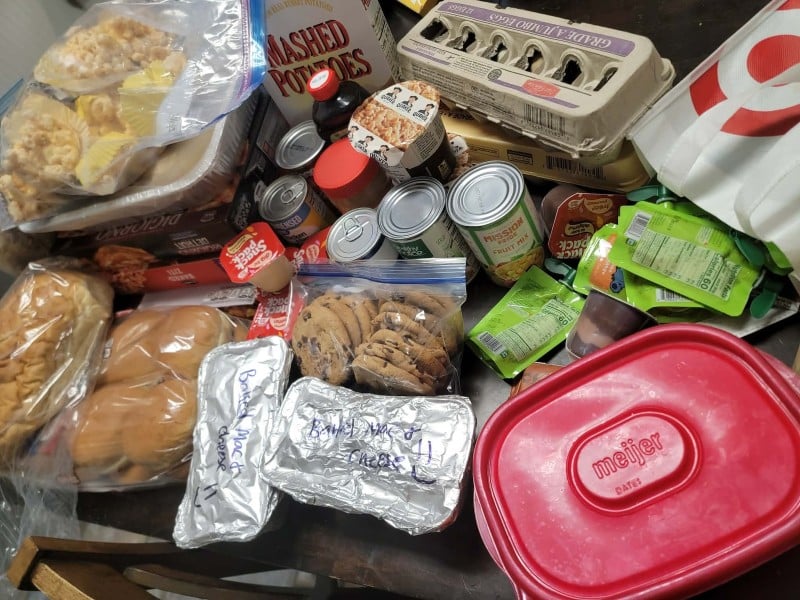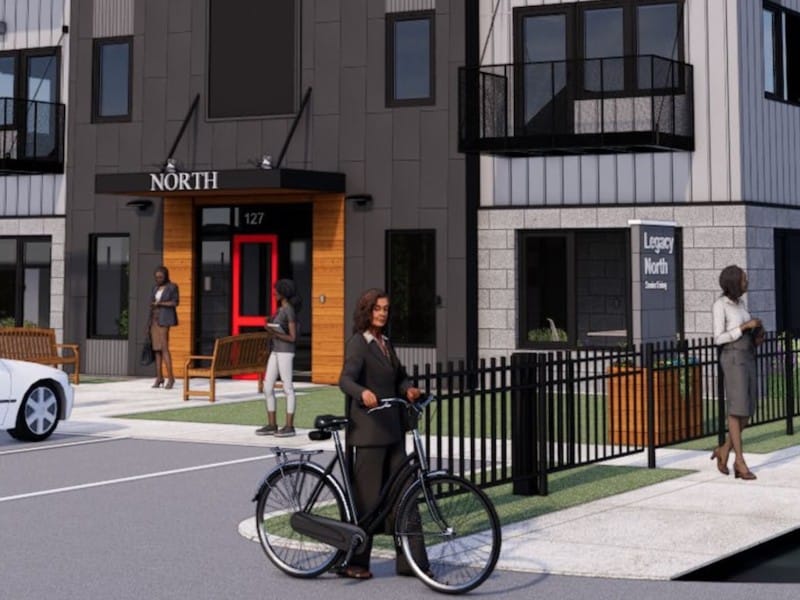To overcome historical trauma the culture and practices of the Nottawaseppi Huron Band of the Potawatomi are being restored.
Editor’s note: This story is part of Southwest Michigan Second Wave’s On the Ground Calhoun County series.
Fred Jacko has chosen not to incorporate his Native American upbringing and culture into the lives of his own children.
“My children will have the choice when they’re adults,” he says.
His decision is in stark contrast to his job as the Culture and Historic Preservation Office Manager for the Nottawaseppi Huron Band of the Potawatomi, which has its offices on the Pine Creek Indian Reservation in Athens. But, he says, it’s necessary to stop the cycle of historical trauma that continues to have lasting impacts on his generation and generations before him.
A multitude of atrocities done to Native Americans that began in the early 1800s at the hands of government officials who enacted legislation that took away their land, their rights to live their lives as a free people, their culture, heritage, and in too many instances their family structure has caused lasting trauma.
Jacko says historical trauma is a term for behaviors that are passed down from parents to their children.
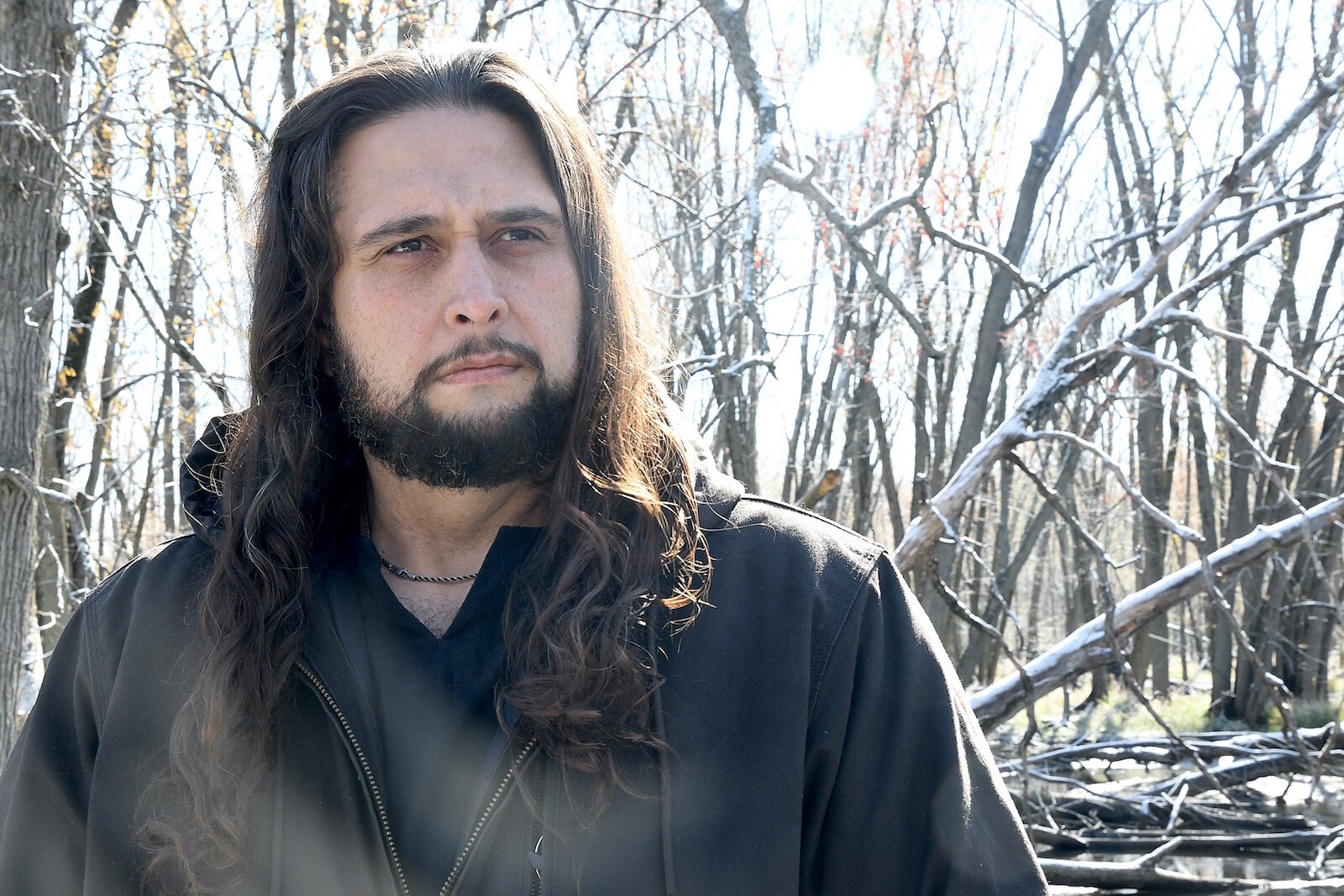
“The person is experiencing it from their elders. They are victims of the trauma that their elders experienced and relive to due consequences from that trauma,” he says.
“One of the major consequences is poverty,” Jacko says. “If you look at other populations, they are able to gain wealth through various generations. Indians on the other hand, up until very recently, haven’t been able to do that. Too many men don’t start sobering up until they’re in their 30s or 40s. Men who were respected in the community spent their 20s and 30s fighting demons and that’s time they lost. Where they could have been productive, they’ve spent that time suffering.”
Jacko says, “My generation is the first one to look at it for what it really is. We think in terms of Seven Generations.”
The Seventh Generation outlook comes from the Great Law of the Haudenosaunee, the founding document of the Iroquois Confederacy, the oldest living participatory democracy on Earth, according to the Seven Generations International Foundation. It is based on an ancient Iroquois philosophy that: “In our every deliberation, we must consider the impact of our decisions on the next seven generations.”
“It will be up to my children and their children to pick up the ball and really fix it,” Jacko says. “It will be a couple of hundred years before we’ll see a difference. The generation before us was in survival mode.”
To survive, previous generations often denied the emotional hurt they suffered and refused to acknowledge the pain caused by the extreme oppression of Native Americans. They did not have open and honest conversations with their children about what they experienced and instead adopted coping mechanisms such as alcoholism, substance abuse, and unhealthy lifestyles.
Today this trauma is now recognized and being dealt with. Mariesha Keith says the healing is happening and “we’re at a point where we’re opening it up and breaking through those generational curses. It’s like a curse until you can forgive. But there’s still healing that hasn’t happened and that causes disruption in the ability to work, get an education, and manage everyday life.”
A generation in survival mode is what Mariesha Keith and her sister, Nickole, grew up with. Even though they lived with their parents, four other siblings, and extended family members in the Washington Heights neighborhood, that family support system didn’t prevent their father from drinking and smoking or their mother from assuming responsibility for the children of relatives who could not care for them along with her six children.
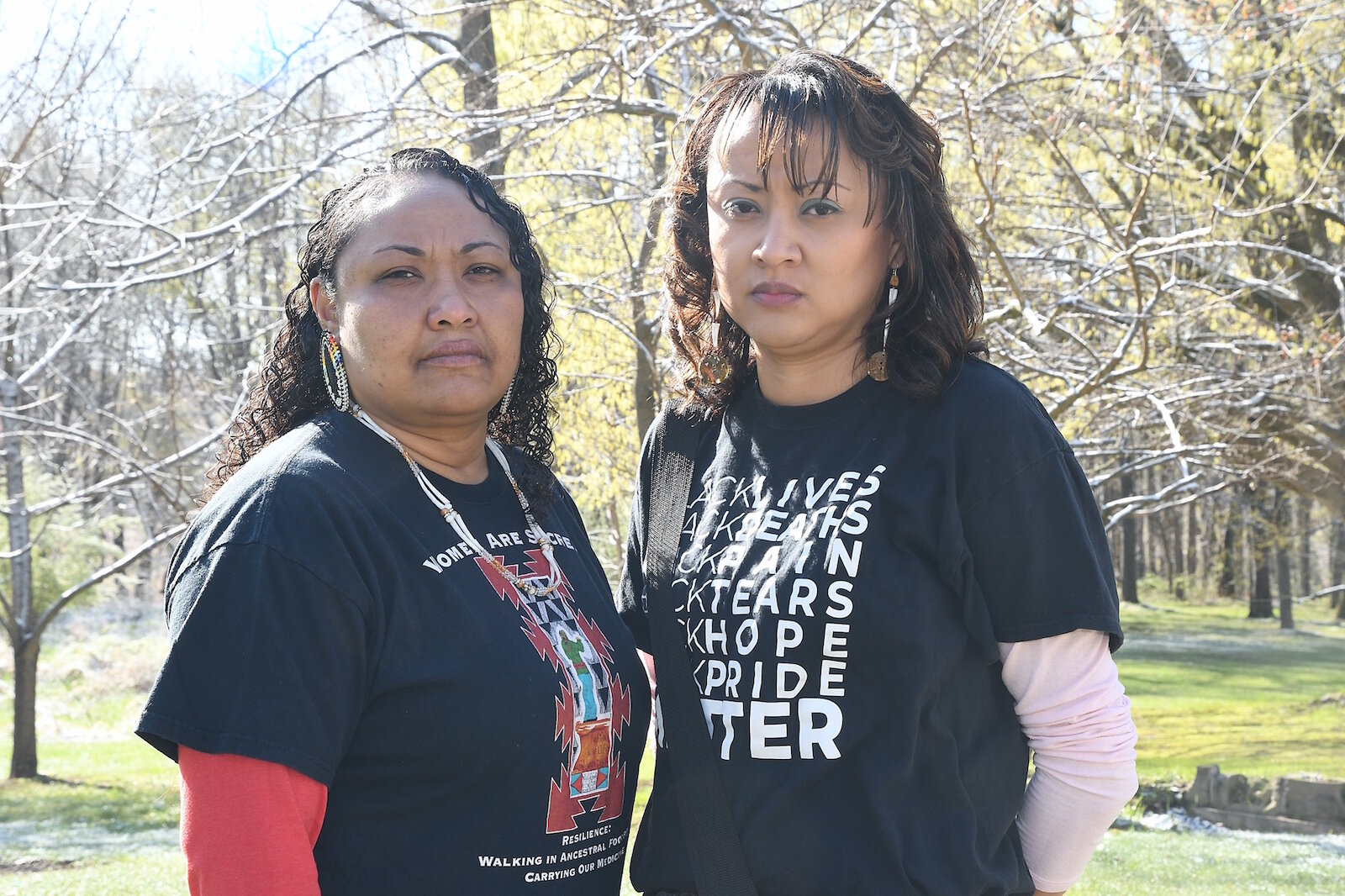
“We felt like we were still a sovereign nation from within because our family was so big and we kind of took up the block,” Mariesha Keith says.
The Keiths’ mother grew up on Pine Creek Indian Reservation. Jobs were scarce and the Reservation lacked adequate housing and had no running water or indoor plumbing. When their mother was young, she was temporarily put in foster care after her own mother left the family. Her husband’s drinking had become too much for her to handle.
The Keiths’ parents met in Battle Creek and married. Their father, an African American, was a World War II veteran and worked at a foundry in Battle Creek. Their mother stayed home to raise the children. The historical trauma experienced by their parents and grandparents would become a standard part of their union, eventually passed on to their own children.
Mariesha Keith, a Tribal Liaison with the NHBP, says everything in their lives revolved around alcohol, their father’s choice for a coping mechanism.
“My first experience with alcohol was when I was eight years old,” she says. “I was mimicking what my dad and cousins and aunts and uncles were doing.”
“In our family, people were dying of alcoholism like it was a normal way to die,” Nickole Keith says. “I believe it was a coping mechanism and it allowed us to communicate because we are a quiet people.”
Mariesha Keith says she was rebellious as a teenager and was always running away. She saw her father a few days prior to his death in May 1999 but was not there when he passed away. She says her absence brought on guilt and unanswered questions about how things may have happened differently if she had been there and was able to speak with him.
Nickole Keith found her father after he died and administered CPR, but it was too late. “He died from smoking and drinking alcohol and I did both that day,” she says. “My alcoholism began that day and continued for 20 years.”
Like their ancestors before them, alcohol became their coping mechanism. At the time, Nickole was 18 and Mariesha was 16.
“I didn’t know any other way to deal with it or process it,” Nickole Keith, now 41, says. “I’d seen my family do this with other deaths.”
The sisters are both recovering alcoholics. Mariesha, 37, has been sober for seven years and Nickole has been sober for four years.
In addition to her job as Tribal Liaison, Mariesha Keith leads a meeting every Thursday on the Reservation where members of the Tribe and non-members can talk about their addictions and the impact addictive behavior has had on those around them. She says these meetings began six years ago and were the result of her journey to get sober and find coping mechanisms, other than alcohol, to address her own historical trauma.
Nickole Keith, who now works as a cook for NHBP events and is also an artist, says she never heard of historical trauma as it relates to Native Americans until she began a job with the NHBP where she worked with a youth group and later tribal elders.
“While working with the youth group I learned about historical trauma. It became clear that I was suffering from historical trauma and what I was experiencing was real,” she says. “You could see it in the way children were being raised and the way elders think. They (the elders) are so scared of our culture because they were pushed not to celebrate our culture and they’re scared of our medicines.”

This fear is directly tied back to former generations who were separated from their families as children. They were put into government-run boarding schools that were established to assimilate them into the White man’s culture and way of life. At these schools, their hair was cut and they wore uniforms. They were disciplined for speaking their native language or engaging in rituals or customs.
Jacko says these boarding schools had been around since the 1870s, but it wasn’t until 1891 that they were formally established by the U.S. Congress. They were set up to teach Native American children the majority culture and expose them to lessons in farming, home economics, or the skilled trades.
Eventually, the operation of these schools was turned over to churches.
“Christians took a dim view of our beliefs,” Jacko says. “They said, ‘We should do what we must to save these children from hell and attendance was compulsory.’ They were made to attend an off-reservation school.
This legislation was in effect until 1978 when the Indian Child Welfare Act was signed into law. The purpose of the Indian Child Welfare Act (ICWA) is “…to protect the best interest of Indian Children and to promote the stability and security of Indian tribes and families by the establishment of minimum Federal standards for the removal of Indian children and placement of such children in homes which will reflect the unique values of Indian culture. ICWA provides guidance to States regarding the handling of child abuse and neglect and adoption cases involving Native children and sets minimum standards for the handling of these cases.
Jacko’s father was raised as a Christian and became a preacher.
“So, I spent my earlier life being a Christian and when I couldn’t do it anymore that’s when my own family life fell apart. I spent my early teens and 20s trying to fit in and I lost everything else because of it,” Jacko says. “My father tended to just accept things. His own father believed in two things – work and work – and they stayed out of school to work in lumber camps. I am the first generation not to work in the woods.”
Historical trauma is not history, it’s current
The boarding school in Harbor Springs that Jonathan Rinehart attended in first and second grade closed in 1986. He was there in 1976-1977 after his mother, a single mother trying to earn a living to support herself and her children, decided this was the best solution while she got on her feet.
“As a young child, what choice did we have?” asks Rinehart, a Case Manager/Therapist with the NHBP’s Behavioral Health Department in Grand Rapids. “We say all of these things happened so long ago, but they really didn’t. There are people whose grandparents are still alive who were native hunters. The greatest misconception is that these atrocities happened so long ago, but it wasn’t until 1978 until we got our religious freedom back.”
Within the past 100 years, Rinehart’s great-grandmother was put into a boarding school. He is not sure about his grandmother because she passed away in 1951 while giving birth to twins. So, while it may have skipped a generation, his mother chose the same route as her grandmother.
He says he remembers arriving on the campus, operated by the Catholic church which was a city block long, and being separated by gender and age in the dorms housing the children.
“I’d be lucky to come into contact with my siblings three or four times a month,” says Rinehart. “There was a nun who oversaw each dorm, but they weren’t parents. The Catholic church decided to do this as an outreach to tribes. Then families at one point started to expose their children to the boarding school experience. Things were leveraged where kids could be removed from their homes and put into boarding schools versus adoption. Under that structure, you’re setting up for attachment issues. Even in those formative years, children are learning to be parents from someone who is not their parent. It’s just not the same. Attachment on an institutional level just doesn’t exist.”
Affection was always in short supply and discipline was always severe. Rinehart says individuals from his grandmother’s generation and generations before and after would be beaten for speaking their native language. They also had marbles strapped to their knees and were made to clean the floor on their knees with toothbrushes.
“While we were there a paddle was involved when kids stepped out of line,” he says. “Our grandparents weren’t taught affection at boarding school. They don’t know how to say ‘I love you’ and they end up having offspring that continue that cycle. The stories aren’t talked about anymore, but the trauma manifests itself through a lack of physical or emotional affection.”
Jacko says the generations raised in boarding schools didn’t know how to parent because they weren’t parented. He says they also came out of school and felt they didn’t belong in their own culture or the majority culture.
“They sought out coping mechanisms and the easiest one is alcohol. If I experienced these events and it got me to turn to drugs and alcohol that causes me to be an abusive father to my children,” he says. “That’s not unique to Indians. You see parents struggling with their children and their children struggling with their own children.”
Many times, these struggles resulted in children going to live with relatives. Mariesha Keith says her grandmother raised 14 children, all her own, and her mother raised her own children, in addition to the children of relatives who had issues with alcohol, substance abuse, and domestic violence. Although their husbands both worked and provided financially for their families, they were both alcoholics and not fully present for their wives or their children.
“It’s so genetically intertwined that this is normal and survival mode. My mom’s mom was in survival mode trying to protect her kids and trying to make a living,” says Mariesha Keith.
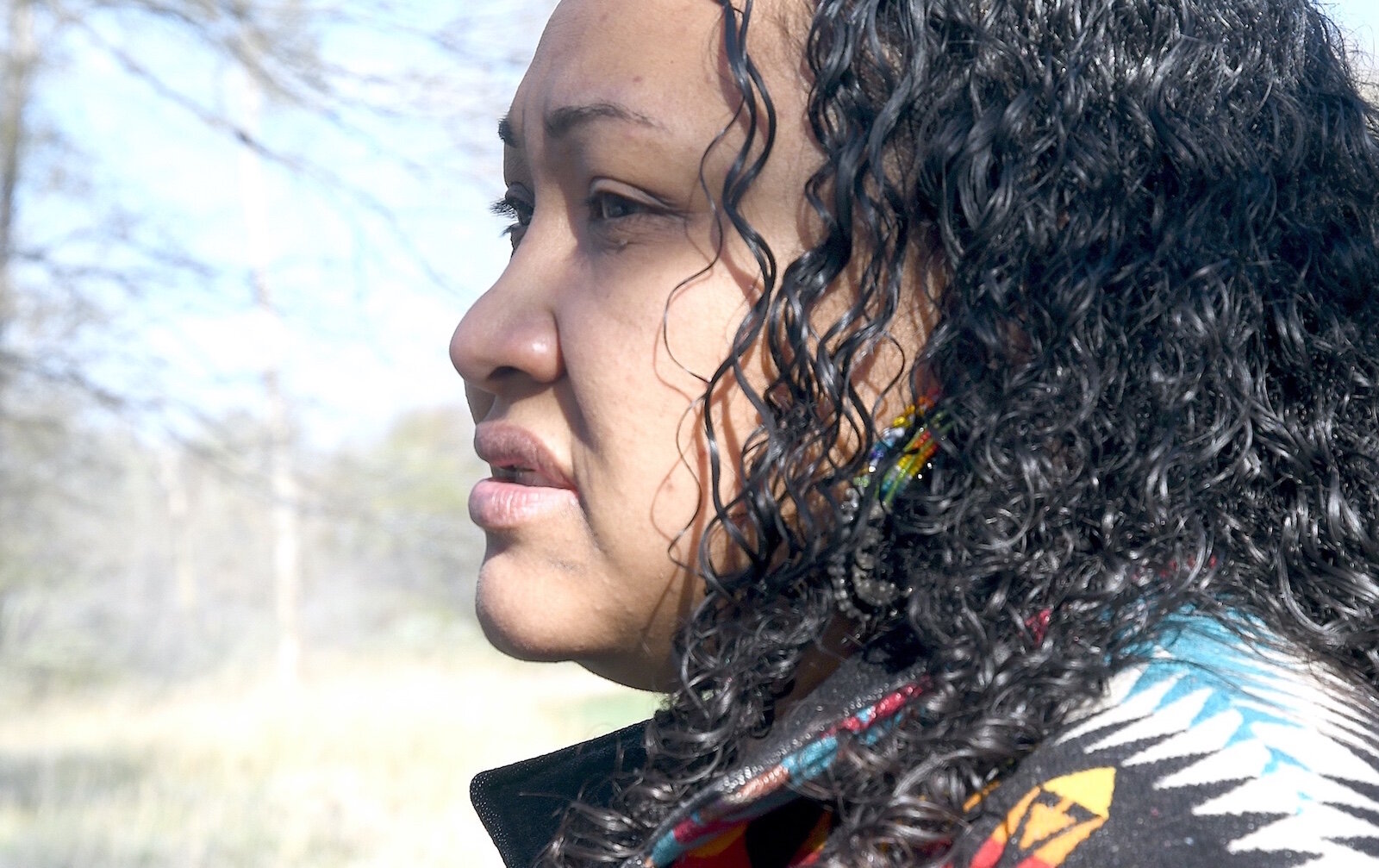
Poverty, lack of education, and abandonment issues caused a lot of grief and still do, Nickole Keith says. “Historical trauma seems like it’s a part of history, but it’s just as real now.”
Nickole Keith says her mother always said she didn’t have a choice.
“You hear a lot of blame from certain families who got family taken away and they assumed (my mother) was supposed to take care of all of these other kids,” says Nickole Keith. “The fact that my mom was left alone most of the time and had to be a parent to all these kids, she assumed we would take that same responsibility. There were expectations but no reinforcement.”
Mariesha Keith says she has found herself unintentionally passing on these expectations to her children, especially her eldest child.
Ending a Damaging Cycle
To overcome historical trauma, Rinehart says what was taken away to create the trauma must be put back in place, this includes the Native American culture and practices.
“You have to integrate cultural wisdom and knowledge,” he says. “Part of achieving human potential is getting to spirituality. It’s about integrating cultural norms within the people to reculterate them into native culture whether that’s teaching the Seven Grandfather teachings or encouraging participation in ceremonies. There’s a void in not knowing cultural norms.”
He also encourages people to talk about their experiences with historical trauma.
“I encourage them to bring that up and have conversations where you can,” Rinehart says. “For me, my great-grandmother never really talked about what her experience was like. She was affectionate and always wanted to give me a kiss or a hug and she was no holds barred with many things, but she never talked about what she experienced.”
He found himself doing his own deferring during a group therapy class he participated in as part of his professional development.
“I would crack a joke because I thought to myself, ‘Would other people really understand what it was like to be removed from your home and put in a boarding school?’ When you don’t have the emotional vocabulary to talk about it, how can you talk about it?” Rinehart asks. “For me, to guard my emotional response, I got good at diverting to other people to talk about their stuff.”
Jokingly, he says he got so good at it, that he is now being paid to do it. He says he dealt with his own historical trauma by becoming a therapist.
“Many people in this profession have their own trauma,” he says. “I had my own personal trauma but I also had historical trauma. In order to fix me, it’s about fixing others.”
Jacko says being able to work with therapists like Rinehart encourages open and honest conversations about the lasting impacts of historical trauma on tribal members, especially those raised in boarding schools.
“Motherhood is sacred and fatherhood is sacred and that’s what we follow to build a nuclear family. We lost that because there were kids not raised in a family,” Jacko says. “We have to get to a point as a people where we aren’t losing so many of our members to substance abuse. We have the tools that will allow us to catch up now.”

The first step for Nickole Keith was to accept that her parents had trauma too. She says she recognized that when she became sober.
“We try to have them at this higher level of respect and some don’t understand and speak their voice. There’s so much trauma in their past it may not come out right or as it should be perceived. They survived all this trauma and my mom and her siblings went to Athens school and were raised in extreme poverty.”
Unlike their parents who did not speak a lot about the trauma they carry, the sisters say they have chosen to be very transparent with their children. They also try to be aware of their own tendencies to pass on behaviors that are the result of the generational historical trauma they continue to struggle with.
“With my kids, I just believe in telling the truth and not holding anything back. I reinforce that sobriety is the best way to deal with it,” Nickole Keith says.
“Honesty is one of the Seven Grandfather Teachings,” Mariesha Keith says. “If we don’t share our experiences and the truth of it and the realness and rawness of it, they’re not going to learn about it. I will be seven years sober this year and I still have a Blow machine in my car (a breathalyzer). I explain to them that I made a bad choice and I don’t want you to make that same choice.”

